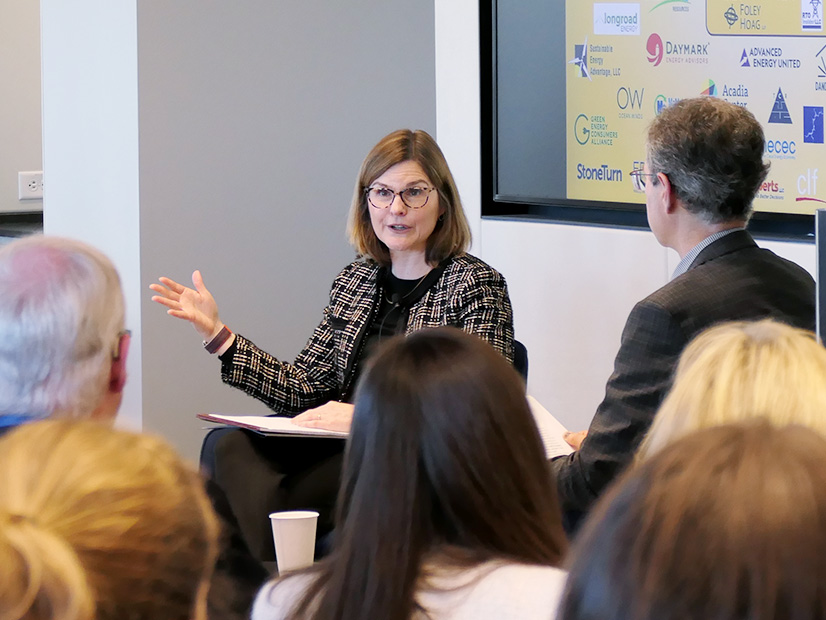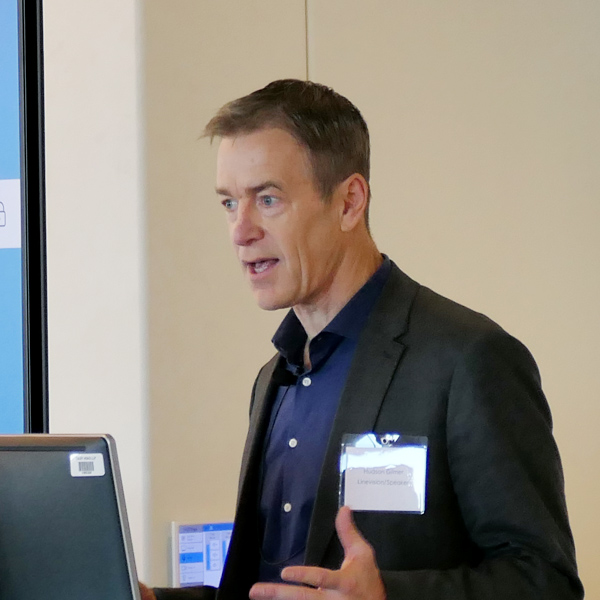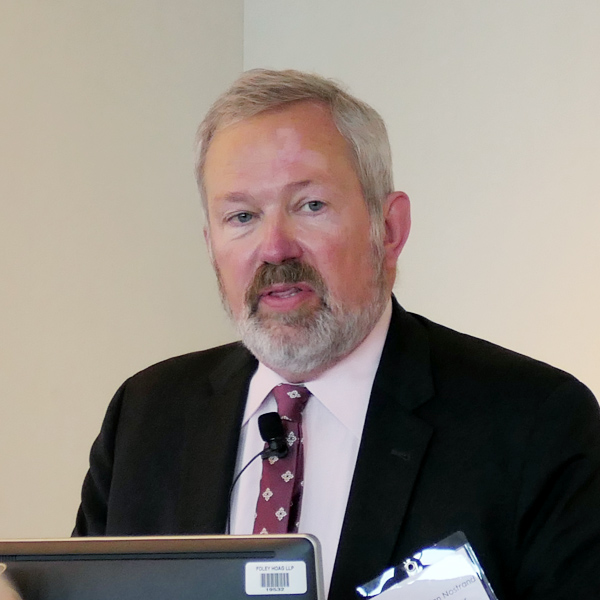BOSTON — Order 2023 is just the first step in addressing the interconnection backlogs in New England and across the country, FERC Commissioner Allison Clements said at Raab Associates’ New England Electricity Restructuring Roundtable on Dec. 8.
“It would be silly and naive to think that we would fix the interconnection queue just by taking a first step,” Clements said. She outlined several next steps that were detailed in her concurrence on Order 2023.
The commissioner said addressing transmission planning issues will be key to reducing backlogs. FERC has been working on a final rule on transmission planning, which has generated significant interest from environmental, industry and labor groups. (See FERC Gets Growing Calls to Finish Transmission Rule in 2024.)
“Fundamentally, we’re not going to fix the interconnection queue process if the transmission system planning process doesn’t anticipate and doesn’t recognize what’s in the queue,” Clements said.
Clements highlighted the potential of a default cost-sharing mechanism for large transmission projects that would prevent disagreements between states from hindering progress.
“If the states can agree on a cost-allocation approach, great. But what happens if they can’t?” Clements asked. “There’s a lot of support for a default mechanism so that the infrastructure that comes out of this robust planning process can then get cost-allocated and we don’t worry about a single-state veto or free-ridership concerns.”
Regarding state clean energy solicitations, Clements told attendees that “resource planning processes across states should be aligned with the interconnection queue … if you can’t get your state-solicited resources online, then we have an immense problem.”
New Technologies
Clements also spoke about the potential of grid-enhancing technologies (GETs), calling them the “cheapest, nearest term, shortest payback investments that we can make related to getting more efficiency out of our existing system.”
She added she’s considering which GETs should be included in a final rule on transmission planning.
Hudson Gilmer, CEO of the grid monitoring and analytics company LineVision, said the adoption of dynamic line ratings has accelerated across the country, in part because of the pressures of load growth and the availability of federal funding from the Department of Energy’s Grid Resilience and Innovation Partnerships Program.
However, Gilmer said the Northeast has lagged in its adoption of GETs.
“The U.S. is behind the rest of the world … and let’s be honest, New England is behind the rest of the country,” Gilmer said. He added that GET adoption “can be accelerated by incentives that level the playing field with more capital-intensive traditional grid upgrades.”
Sarah Jackson of the multiday battery storage company Form Energy highlighted the potential benefits of long-duration storage to New England, detailed in a white paper published by the company in September. (See Form Energy Wants to Bring Long-duration Storage to New England.)
Jackson said the lack of recognition in ISO-NE’s capacity market of the reliability benefits of multiday battery storage is one of the factors holding back the technology in New England.
“This is a place where the markets have not caught up to the technology,” Jackson said. She added that state procurements of long-duration storage could help speed up its commercial development in New England.
“We don’t have the luxury of waiting for the technology to mature, we need this energy storage yesterday,” Jackson said.
Gas Decarbonization
Two days prior to the Roundtable, the Massachusetts Department of Public Utilities (DPU) released a major ruling following a multiyear investigation into the Future of Natural Gas in the state (DPU 20-80-B).
The release of the ruling came as a surprise to many stakeholders in the state and generally was applauded by environmental groups for its emphasis on weaning the state off gas. (See Massachusetts Moves to Limit New Gas Infrastructure.)
“The focus is on setting a regulatory framework that is flexible, protects consumers, promotes equity, and provides for fair consideration of current technologies and commercial applications,” DPU Chair Jamie Van Nostrand told the Roundtable.
Van Nostrand said the order is intended to bring the state’s gas industry and heating sector into compliance with the state’s statutory emissions targets, including the sector-specific sublimits established in the state’s Clean Energy and Climate Plan for 2025 and 2030.
“We’re either serious about addressing climate change in Massachusetts, or we’re not. We’re either serious about meeting the sector sub-limits for greenhouse gas emissions, or we’re not,” Van Nostrand said.
Despite the state’s climate goals, the gas utilities have continued to operate as if it is “business as usual,” Van Nostrand said. “We’re still seeing 1 to 1.5% annual growth in gas load.”
Nikki Bruno, vice president of clean technologies at Eversource Energy, one of the major gas and electric utilities in the state, said she is “really excited about the guidance in the order.”
Bruno highlighted Eversource’s ongoing networked geothermal pilot project in Framingham, Mass. (See Networked Geothermal Breaks Ground in Framingham.)
The pilot project “positions Massachusetts as a state leader in this technology, and we’re looking forward to more,” Bruno said. “It doesn’t matter that it’s not gas, we want to do right by the customer.”
Zeyneb Magavi, co-executive director of HEET, a climate nonprofit that’s been working with Eversource on the project, said geothermal networks could be a significant tool in decarbonizing dense environmental justice neighborhoods.
“The hardest places for us to decarbonize today are often the ideal places for geothermal networks,” Magavi said.
Looking ahead, several speakers at the Roundtable spoke about the need to address state laws that require utilities to provide gas to existing customers who request it. Under these laws, individual gas customers could prevent the decommissioning of parts of the gas network.
“I do think we need to revisit that obligation to serve, to make it clear that customers are still going to be provided the essential utility service of heat, but it may be provided in some way other than gas,” Van Nostrand said.






